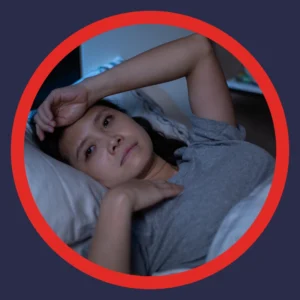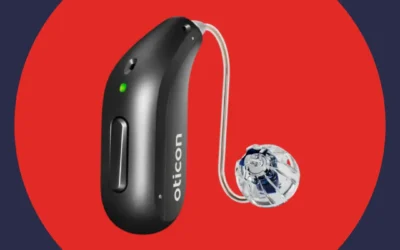Tinnitus is the perception of sound without an external source. Some hear ringing, buzzing, humming, or clicking. Others experience a whooshing or pulsing sound that follows their heartbeat. These phantom noises range from mildly annoying to deeply distressing. At least 20 million Americans report symptoms, and nearly 2 million live with debilitating tinnitus. There is no cure. But there are proven ways to address tinnitus and reduce its impact on daily life.

The Brain’s Role in Tinnitus: When Sound Comes from Within
Tinnitus is not just an ear issue. It involves the brain’s interpretation of sound. When hearing loss occurs, the brain receives less auditory input from the ears. This decrease in stimulation causes the brain to reorganize itself, filling in the gaps with phantom sounds—what we experience as tinnitus.
This phenomenon is linked to a concept called maladaptive neuroplasticity. The brain, in trying to compensate for the lost input, becomes hyperactive in areas responsible for sound processing. This activity produces internal noises that have no external source. The result is tinnitus, often high-pitched and constant.
When the brain detects this phantom sound, it doesn’t recognize it as harmless. Instead, it may trigger the body’s fight-or-flight response. Cortisol, the body’s main stress hormone, is released. Heart rate increases. Muscles tighten. Sleep becomes difficult. The more you fixate on the sound, the louder and more disruptive it feels. This forms a feedback loop—tinnitus causes stress, and stress makes tinnitus worse.
This is why people with untreated hearing loss often report both increased tinnitus and higher levels of anxiety or depression. With less access to natural environmental sound, the brain remains focused on the internal noise. Reintroducing external sound through hearing aids or sound therapy helps calm this heightened state and begins to restore balance.
The key to breaking this cycle lies in calming the nervous system and restoring sound input. The brain is highly adaptable. With proper intervention, support, and repetition, you can train it to tune out tinnitus and reduce its distressing impact.
Understand how fireworks can cause hearing damage.

Why Hearing Aids Are a Game-Changer for Tinnitus Relief
One of the most effective tools to manage tinnitus is the use of hearing aids. This is especially true for individuals who also experience hearing loss. About 90% of people with tinnitus have some degree of hearing impairment. Hearing aids help address both issues at once.
Amplifying the World Around You
When your ears don’t receive enough external sound, your brain tries to compensate. This often leads to the phantom sounds we call tinnitus. Hearing aids amplify the world around you, delivering more sound to the auditory system. That extra input helps reduce the brain’s need to fill in the silence.
Built-In Tinnitus Masking Features
Modern hearing aids also come with tinnitus masking features. These include gentle background sounds, such as ocean waves, rainfall, or white noise. Some devices allow you to customize these sounds to match your tinnitus frequency. This blending technique helps distract your brain from the ringing.
A More Connected Life
Wearing hearing aids regularly can retrain your brain to tune out tinnitus. The benefit goes beyond sound masking. When you hear conversations and everyday sounds more clearly, your stress decreases. You feel more connected and less isolated. This emotional shift can make tinnitus less noticeable.
Customization and Control
The latest hearing aids use digital processing and wireless streaming. Many allow you to control tinnitus settings through a smartphone app. You can adjust masking sounds and track symptom changes over time. When combined with counseling, these devices offer a strong path forward.
What the Research Says
Research backs this up. Studies show that about 60% of people report some relief from tinnitus with hearing aids. Around 22% experience significant relief. For best results, work with a hearing care provider who can tailor the device settings to your specific hearing profile and tinnitus pattern.
If tinnitus is interfering with your quality of life, a comprehensive hearing test is your first step. It’s the gateway to understanding your condition and finding the right treatment tools.
Find out more about the top hearing aids for sale.
Training the Brain: Habituation and Tinnitus Retraining Therapy
Habituation is your brain’s ability to stop reacting to a repeated stimulus. It’s how you learn to ignore the hum of a refrigerator or a ticking clock. With tinnitus, habituation teaches your mind to treat the sound as background noise.
The Role of Tinnitus Retraining Therapy
Tinnitus retraining therapy (TRT) supports this process. It combines directive counseling with sound therapy. A provider helps you understand your tinnitus and remove the emotional reaction. At the same time, you wear a device that plays low-level sound to blend with your tinnitus.
The goal isn’t to eliminate the noise. It’s to make it irrelevant. Over months, your brain adapts. The tinnitus fades into the background, and your awareness of it drops.
Quiet the Mind: How CBT Helps You Respond Differently
Cognitive behavioral therapy (CBT) teaches you how to manage your emotional response to tinnitus. It doesn’t make the sound go away, but it does change how much it bothers you.
Through CBT, you identify negative thoughts and replace them with constructive responses. Instead of thinking, “This will never stop,” you learn to say, “This is challenging, but I can manage it.”
This shift in mindset can improve sleep, reduce anxiety, and lower stress—all of which help reduce tinnitus perception. CBT is often delivered through individual or group sessions, either in person or online.
Calm the Chaos: Stress Management Techniques That Work
Stress fuels tinnitus, and tinnitus increases stress. To break this cycle, calming the nervous system is essential.
Mindfulness and Meditation
Meditation helps quiet your mind and reduces your focus on internal noise. Just a few minutes a day can train your brain to be present.
Visualization Techniques
Visualization offers a mental escape. Imagine yourself in a place that brings peace—maybe a beach or a quiet forest. This technique moves your attention away from tinnitus and toward calm.
Mindful Awareness
Mindfulness teaches you to observe tinnitus without reacting. You learn to sit with the sound rather than fight it. With practice, your brain begins to ignore the ringing.
Move to Manage: The Connection Between Exercise and Tinnitus Relief
Exercise is a natural stress reliever. It releases endorphins, improves blood flow, and supports better sleep. These benefits can reduce the intensity and emotional impact of tinnitus.
Try walking, biking, swimming, or yoga. Aim for 30 minutes of movement a day. Even moderate activity can have a powerful effect on your mood and stress levels.
Staying active also boosts your resilience. The more physically balanced you feel, the better equipped you are to manage tinnitus.
Eat for Your Ears: How Diet Affects Tinnitus
Your diet can influence tinnitus. Certain foods may aggravate symptoms. Caffeine, alcohol, and sugar are common triggers. High sodium and processed snacks can increase blood pressure, worsening tinnitus for some.
Try reducing these and adding whole foods: leafy greens, fruits, lean proteins, and omega-3-rich options like salmon. Hydration also matters. Dehydration can amplify symptoms.
Everyone’s triggers are different. Keep a food and symptom journal to see what patterns emerge.
Learn more about how your diet can lower your tinnitus risk.
Fill the Silence: How Sound Therapy Eases Tinnitus
Tinnitus often feels louder in quiet environments. Sound therapy introduces background noise to make the ringing less noticeable.
Masking and Matching Sounds
This can include white noise machines, smartphone apps, nature recordings, or soft music. Some people prefer customized tones that match the pitch of their tinnitus. The goal is not to block the sound but to blend it into something less jarring.
When and How to Use Sound Therapy
Sound therapy is flexible. Use it while working, relaxing, or sleeping. Many find that it takes the edge off their symptoms.
Explore using apps for tinnitus relief.
Look Deeper: Treating the Root Causes of Tinnitus
Sometimes tinnitus has a physical cause. Earwax buildup, TMJ disorders, or neck injuries can all contribute. High blood pressure or changes in blood vessels may also play a role.
Medication side effects are another common source. Talk to your doctor if your symptoms started after beginning a new drug.
A full evaluation may include hearing tests, imaging, or movement assessments. Describing your tinnitus clearly—what it sounds like and when it appears—can help guide treatment.
When Medicine Helps: Exploring Medical and Pharmaceutical Options
There is no drug that cures tinnitus. But medications may help manage the symptoms. Antidepressants and anti-anxiety drugs can reduce emotional distress and improve sleep.
If your tinnitus causes significant insomnia or depression, a physician may recommend pharmaceutical support. The goal is not to mask the sound, but to improve your ability to cope with it.
Always work closely with a provider. Some medications may worsen tinnitus in rare cases.
What’s on the Horizon: Future Treatments and Brain-Based Research
Researchers are exploring advanced treatments like transcranial magnetic stimulation (TMS), which uses magnetic pulses to calm brain activity. Another area of research is bimodal stimulation, which combines sound therapy with gentle stimulation to the tongue or neck.
Some studies are looking at medications that reduce tinnitus symptoms in animal models. Deep brain stimulation is also being tested for severe cases. These therapies are not widely available yet, but they show promising results for the future.
What About Supplements and Alternative Therapies?
Many people try acupuncture, ginkgo biloba, zinc, or melatonin. Results vary. While some feel benefits, clinical trials have not proven consistent results.
Use caution and always talk with your doctor before starting supplements. These may interact with other treatments or medications.
Signs You’re Making Progress
Relief doesn’t happen overnight. But many people begin to notice small changes:
- The volume of the ringing goes down
- The sound bothers you less
- Sleep improves
- You go longer between flare-ups
- You feel calmer overall
Celebrate these signs. They show that your brain is adapting and your strategies are working.

Ready to Find Relief? Start With the Experts
At American Hearing + Audiology, we understand how disruptive tinnitus can be. If ringing, buzzing, or humming is keeping you up at night, don’t wait. Contact American Hearing + Audiology to schedule a comprehensive hearing exam. You deserve peace and quiet—and we’re here to help you find it.



